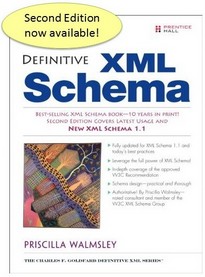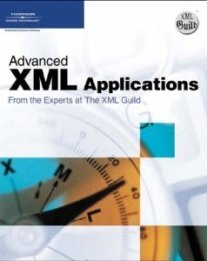Resource
An indication where a given resource can be found, and whether it is to be used as the default vocabulary for certain formal names within the current subtree of a NewsML document. The Urn attribute provides a NewsML URN for the resource. The Url attribute(s) provide(s) a location or locations where the resource may be found. The DefaultVocabularyFor element contains an XPath pattern. The identified resource acts as default vocabulary for any element within the subtree whose root is the parent of the current Catalog, that matches this XPath pattern.
Element information
Namespace: http://iptc.org/std/NewsML/2003-10-10/
Schema document: NewsML_1.2.xsd
Type: Anonymous
Properties: Local, Qualified
Content
- Sequence [1..1]
- Urn [0..1] A URN that provides a global identifier for a resource. This will typically (but not necessarily) be a NewsML URN as described in the comment to PublicIdentifier.
- Url [0..*] A URL that can be used to locate a Resource.
- DefaultVocabularyFor [0..*] An indication that the parent Resource provides the default vocabulary that determines the meanings and permitted values of the data occurring in a particular part of a NewsML document subtree. The Context attribute is an XPath pattern identifying the data to which the default vocabulary applies. If the XPath pattern is one that matches elements, then it is the value of the FormalName attribute of that element that is designated. If the XPath pattern is one that matches attributes, then it is the value of that attribute itself that is designated. The optional Scheme attribute identifies the relevant naming scheme if the Resource contains more than one naming scheme. If the Resource is a NewsML TopicSet, then the meaning of the data identified by the Context is provided by the Topic whose FormalName subelement matches that data. If the Resource is not a NewsML TopicSet, then the way in which it is interpreted in order to provide a meaning for the data is not defined by NewsML but by the authority that governs whatever format the Resource uses.
Attributes
| Name | Occ | Type | Description | Notes |
|---|---|---|---|---|
| Duid | [0..1] | xsd:ID | Duid is a "Document-unique Identifier". It must satisfy the rules for XML ID attributes: it must only contain name characters, and it must start with a name-start character (not a digit). Its value must be unique within any NewsML document. Every NewsML element type has Duid as an optional attribute. Combined with the Identifier element, providing a value for the Duid of any element in a NewsML document makes the element globally identifiable. The Identifier element gives global identification to the document, and the Duid provides local identification for the element within the document. | from group localid |
| Euid | [0..1] | xsd:string | Euid is an "Element-unique Identifier". Its value must be unique among elements of the same element-type and having the same parent element. Use of Euid attribute makes it possible to identify any NewsML element within the context of its local branch of the NewsML document tree. This makes it possible to copy, or include by reference, subtrees into new combinations in ways that would break the uniqueness of Duids (thereby forcing new Duids to be allocated), but still being able to retain the identity of each element. If Euids are maintained at every level, it is possible to identify, for example "The ContentItem whose Euid is abc within the NewsComponent whose Euid is def". Such identification patterns would be preserved even after "pruning and grafting" of subtrees. | from group localid |
Used in
- Type CatalogType (Element Catalog)
Sample instance
<Resource> <Urn>string</Urn> <Url>string</Url> <DefaultVocabularyFor Context="string"/> </Resource>



